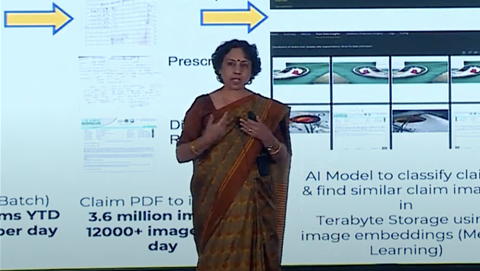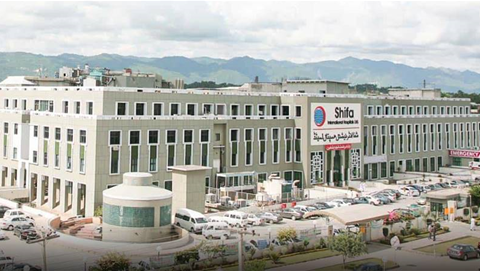AIA, the largest independent publicly listed pan-Asian life insurance group, shifted 70 percent of its systems and workloads to the cloud by the end of 2021 as part of its digital transformation and expects this to increase to 90 percent by the end of this year.
Speaking at the recent IDC Asian Financial Services Congress (AFSC) 2022 in Singapore, AIA’s vice president for group IT operations Marcel Malan said the Hong Kong-headquartered company, which has a presence in 18 markets across Asia, had only 39 percent of its workloads on the cloud in 2020.
“We are well ahead of the global financial services and insurance industry norms in cloud computing usage," Malan said.
According to AIA, in addition to reducing operating expenses, its transformation to the cloud is supporting a substantial improvement in straight-through-processing rates with close to 60 percent of all customer transactions processed without any human intervention and more than 95 percent of all new insurance policies issued electronically.
Malan said the company’s cloud transformation journey is not a “technology transformation” but rather a “business transformation”.
As a result, he said, from AIA’s perspective cost savings were not the predominant driver in moving to the cloud.
“For us, it was about finding the most efficient way to use our infrastructure,” he said.
Malan added that many companies get their cloud transformation journeys wrong because they treat it as a technology process.
Anchor point
Malan said another important part of the cloud journey was to find an “anchor point”, as moving to the cloud “can be daunting as it is very big”.
“For AIA, the critical anchor point was our IFRS 17 project," he said.
IFRS 17 is an international financial reporting standard that was issued by the International Accounting Standards Board that became effective on January 1, 2022.
"We realised the pure scale of trying to do IFRS 17 across 18 markets in Asia," Malan said.
"We would physically have to build a new data centre to accommodate the compute demands."
Malan said all of AIA’s business units in Asia were involved in IFRS 17 and it was built up “as a cloud-native application and that gave us that breeding ground to understand how to do it (move into the cloud)”, he said.
“That was one component of our strategy and the second was, we asked ourselves what are we doing that's new that we should be looking at doing cloud-first? For example, if it’s a lease management system, could we leverage cloud capability versus building it on-premises?”
He added that another challenge faced during AIA’s cloud transformation was that it was not just an infrastructure challenge but rather an application challenge: “Can we manage and broaden applications through the use of the cloud?”
Governance
Malan noted that governance was an important aspect of the cloud journey.
“We created a cloud strategy iteration one, which spelt out how we wanted to govern the cloud,” he said.
This entailed working with every country unit to build a roadmap on cloud transformation with key performance indicators (KPIs), he said.
"With our goal of 39 percent of our systems on the cloud by the end of 2020, 70 percent by the end of 2021, and 90 percent by 2022, we worked backwards from that during the implementation process," Malan said.
What that meant from an application and transformation agenda perspective is that in each country the IT teams, as well as the business teams, understood the priorities, and “therefore the business obstacles were removed," he said.
Malan added that one of the easiest things to say during any cloud transformation journey is, “I’ll just lift and shift” (to the cloud).
“Our strategy from the start was to use the cloud as part of our business transformation and modernisation journey and while one of our key KPIs was 90 percent on the cloud by 2022, an even tougher one was zero legacy; we wanted zero system legacy after our transformation,” Malan said.
As a result, he added that when AIA migrated to the cloud, it did not migrate any legacy systems across.
“We are asking people to transform as far as possible, where we can do it cloud-native, or to uplift to use cloud services where possible. This was a big part of the transformation."
Next horizon
Malan said finding the right mix around how to use automation for the right purposes, the right business value is the next major goal.
“And, zero legacy footprint, where we can seamlessly integrate with our health tech partners, and drive that digital ecosystem that is end-to-end management for our customers and agents,” he added.
Malan said that other major focus areas are around information and cyber security, and think apps.









